The brain's ability to adapt can lead to both positive and negative outcomes from "summary" of Phantoms in the Brain by V. S. Ramachandran
The brain's remarkable plasticity allows it to adapt to a wide range of circumstances, leading to both positive and negative consequences. For instance, in cases of amputation, the brain can rewire itself to alleviate phantom limb pain, demonstrating its ability to bring relief and improve quality of life for individuals. This positive outcome showcases the brain's adaptive nature in response to physical changes. However, this same adaptability can also result in negative outcomes. In the case of stroke patients, the brain's plasticity can lead to maladaptive changes, such as the recruitment of areas normally responsible for other functions to compensate for damaged areas. While this may initially seem beneficial in terms of recovery, it can ultimately hinder the patient's ability to regain full functionality. This demonstrates how the brain's ability to adapt can sometimes have unintended negative consequences. Moreover, the brain's adaptability can also lead to the development of maladaptive behaviors, such as in cases of phantom limb pain. Here, the brain's attempts to rewire itself in response to the absence of a limb can result in the perception of pain in the nonexistent limb. This negative outcome highlights the complexities of the brain's adaptive mechanisms and the potential for adverse effects to arise in certain circumstances.- The brain's ability to adapt is a double-edged sword, capable of producing both positive and negative outcomes depending on the context. By understanding the intricacies of neural plasticity, we can better appreciate the complexities of the brain's adaptive processes and work towards harnessing its potential for positive outcomes while mitigating the risk of negative consequences.
Similar Posts

Seeking help for mental health issues is important
It is crucial to recognize the significance of seeking help for mental health issues. Many people may feel hesitant or embarras...
Embracing curiosity and exploration fosters brain plasticity
When we allow ourselves to remain curious about the world around us and engage in exploratory activities, we are actually stimu...
The brain can be influenced by external factors
The brain, that three-pound organ housed within the skull, is the seat of our consciousness, the command center for our thought...


